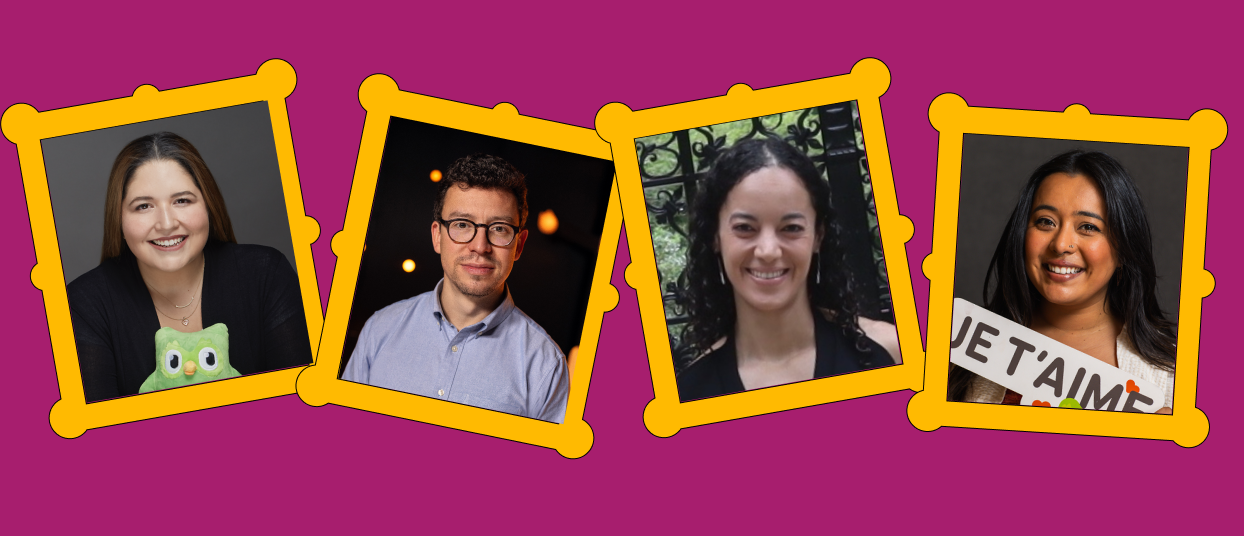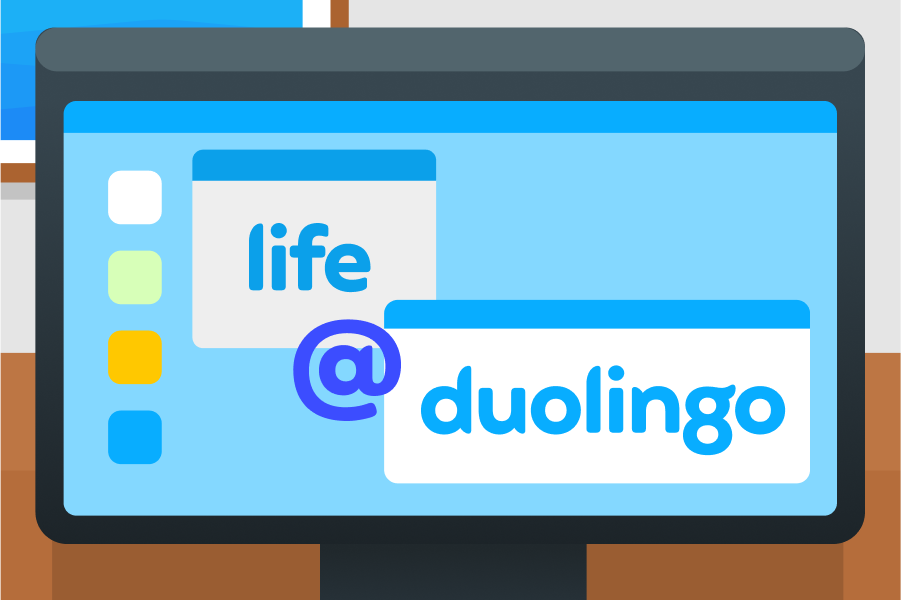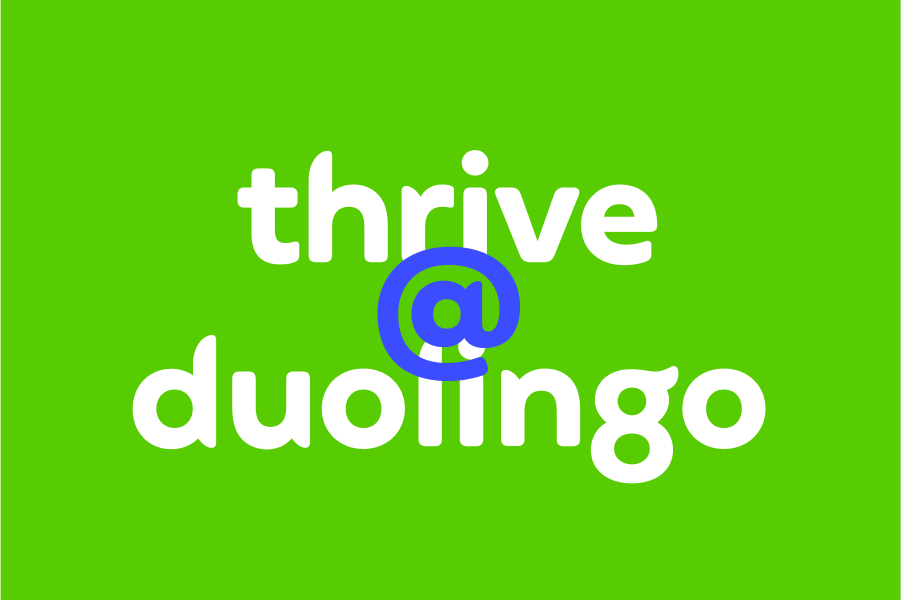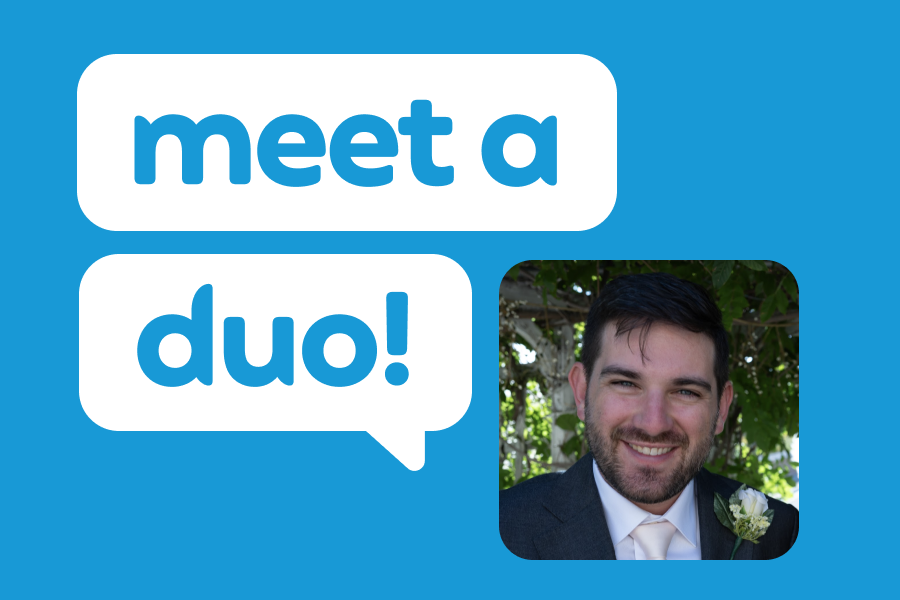In our diverse world, it's important to learn about the cultures of those we work with everyday. In honor of Hispanic Heritage Month, I spoke with Rebeca Ricoy (Mexico City and Austin, TX) a Regional Marketing Director, Michelle Roque Alvarez (Livermore, CA and Michoacán, Mexico) a recruiter on our Talent Acquisition team, Natalia Castillejo (Venezuela and Argentina), a Director of Product Management, and 0ur CEO Luis von Ahn (Guatemala), to learn how their Hispanic heritage has influenced their lives. Here are a few of my takeaways from our conversations!

Close-knit families and meaningful friendships have shaped their lives
Everyone I spoke with emphasized the importance of family and that being close with your family is a point of pride. It was also clear the role that food plays in creating close bonds.
Luis: "I come from a large extended family, all of whom act like there are zero boundaries, most Latino families have about 12 cousins, and they think, 'What's yours is theirs.' Eating together and the mayhem—food is a major thing for me. And there are no secrets. We’re all very close. My mother lives with me, and people will say: `You live with your mother?’ and I always respond, ‘No! My mother lives with me!’”
Rebeca: “I love the sobremesa aspect of Latin culture… In Mexico you never say what time the event will end because you never know... you may just stay until the sun comes out!”
Finding inspiring figures and role models set them on paths to success
Mentorship is important at Duolingo—and for these Duos, it was even more important to find leaders in their community that they could emulate and learn from.
Luis: “I learned so much from my PhD adviser, Manuel Blum, who grew up in Venezuela and won the Turing Award in Computer Science. During my first year of PhD, I had to read a paper and explain it to him. I soon realized that I understood less than I thought. It taught me a lot about clear, precise communication”
Natalia: “My Grandpa, Sergio Arias is a notable scientist in Venezuela who dedicated his life to research about hereditary diseases. His work on conditions like Wilson's disease and porphyria revolutionized our understanding of hereditary diseases in Venezuela and significantly reduced treatment costs for many Venezuelans. His work ethic and lifelong dedication to advancing medicine in Venezuela are a huge inspiration for me.”
Michelle: “My mom, Cecilia, has been a huge inspiration and role model to me. My mom didn’t come here with a lot, but she has built so much and has continued to stay humble and kind. She taught me the importance of education and even though I thought she was extremely hard on me when it came to school, I can see how this positively affected me.”
The movies, TV shows, and books they want to share with everyone
As an immigrant myself, I was curious what pieces of literature, art, or film folks felt gave a glimpse into Hispanic culture.
Rebeca: “I highly recommend both the movie Como agua para chocolate and the book by Laura Esquivel. The entire story is centered around the kitchen and cooking, and that is pretty much what Mexican culture is all about. Even though the story is from the early 1900s, you get to understand a lot about our culture and our values from the story.“
Luis: “Roma was made by a Mexican director who grew up around the same time as me and he managed to capture my childhood as I remember it! I think it gives a real look into what growing up in Latin America in the 70s and 80s was like.”
Natalia: “Gabriel García Marquez’ stories. Crónica de una muerte anunciada (Chronicle of a Death Foretold) is a good one. I also love Roma and Como agua para chocolate.”
How their culture shaped their worldview
The things that shape our identities and worldviews are incredibly personal and intersectional—and I loved hearing more about each of these Duos’ perspectives.
Luis: "I started Duolingo because I grew up in Latin America speaking Spanish. I saw what learning English can do. I saw how education can lift people out of poverty. Had that not happened, I might not have started Duolingo.”
Michelle: “Being a first generation Mexican American, I always struggled with my identity. My culture and traditions were Mexican because of my parents, but I was also growing up in an American culture which was different from my home life. To my American friends I was super Mexican, to my Mexican family I was super American. Navigating this struggle led me to advocate for those who don’t have a voice and educate those around me. I’m really proud I’m now able to do this work at Duolingo through our Thrive internship program, which allows me to advocate for and hire underrepresented students in tech."
Rebeca: “I’ve lived in Mexico for most of my life so my roots and culture define a core aspect of my life. However, because I’ve had the good fortune of also living in the U.S., Canada, and Australia, I get to weave my heritage with other cultures and I absolutely love that.”
Our commitment to diversity and inclusion
At Duolingo, we believe that our workplace is unlike any other. Our products impact people globally, transcending borders, languages, and cultures. We want our workforce to reflect that. Duolingo is a place where everyone can add value by lending their unique cultural experiences to our mission.
Hispanic Heritage Month reminds us of the importance of weaving diversity and inclusion into the fabric of our organization. It's about more than just celebrating culture; it's about understanding, appreciating, and embracing it!



